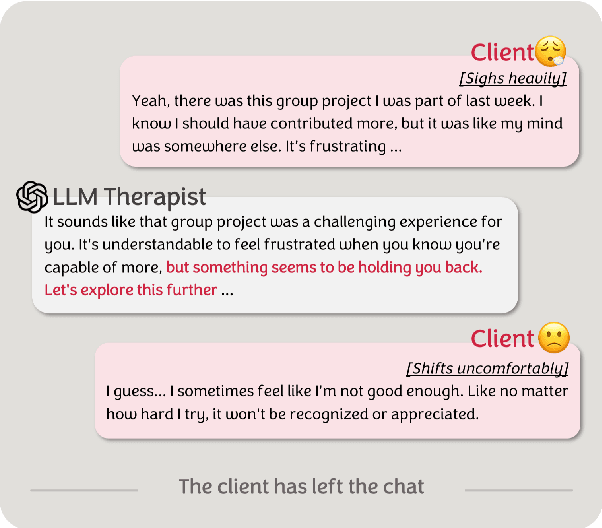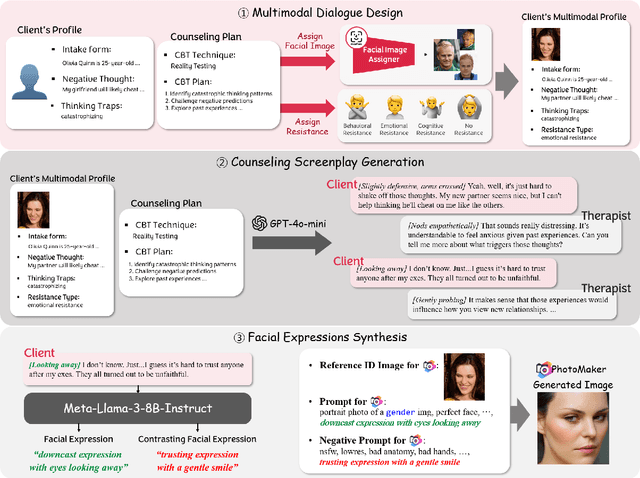Mirror: Multimodal Cognitive Reframing Therapy for Rolling with Resistance
Paper and Code
Apr 16, 2025



Recent studies have explored the use of large language models (LLMs) in psychotherapy; however, text-based cognitive behavioral therapy (CBT) models often struggle with client resistance, which can weaken therapeutic alliance. To address this, we propose a multimodal approach that incorporates nonverbal cues, allowing the AI therapist to better align its responses with the client's negative emotional state. Specifically, we introduce a new synthetic dataset, Multimodal Interactive Rolling with Resistance (Mirror), which is a novel synthetic dataset that pairs client statements with corresponding facial images. Using this dataset, we train baseline Vision-Language Models (VLMs) that can analyze facial cues, infer emotions, and generate empathetic responses to effectively manage resistance. They are then evaluated in terms of both the therapist's counseling skills and the strength of the therapeutic alliance in the presence of client resistance. Our results demonstrate that Mirror significantly enhances the AI therapist's ability to handle resistance, which outperforms existing text-based CBT approaches.
 Add to Chrome
Add to Chrome Add to Firefox
Add to Firefox Add to Edge
Add to Edge